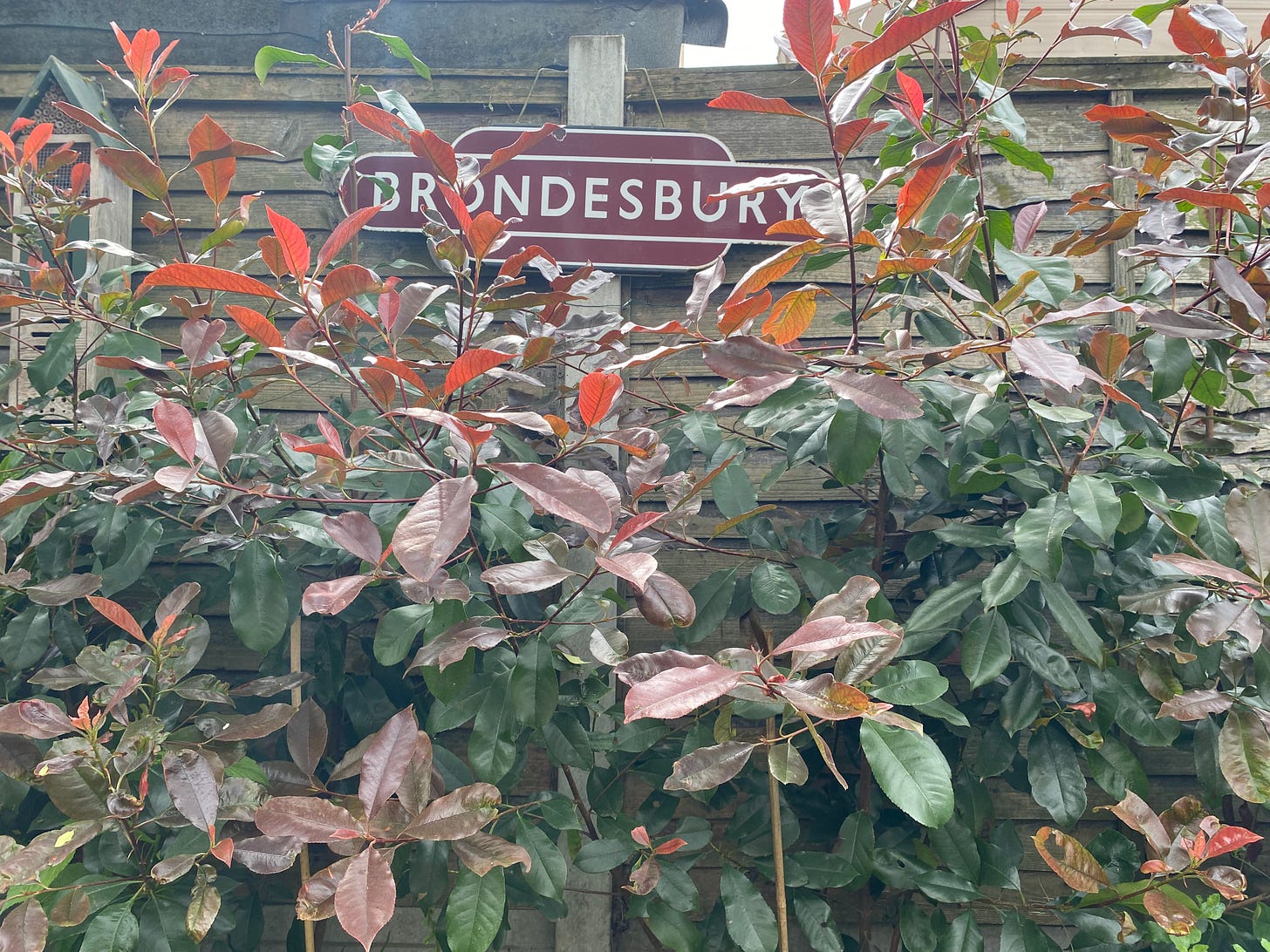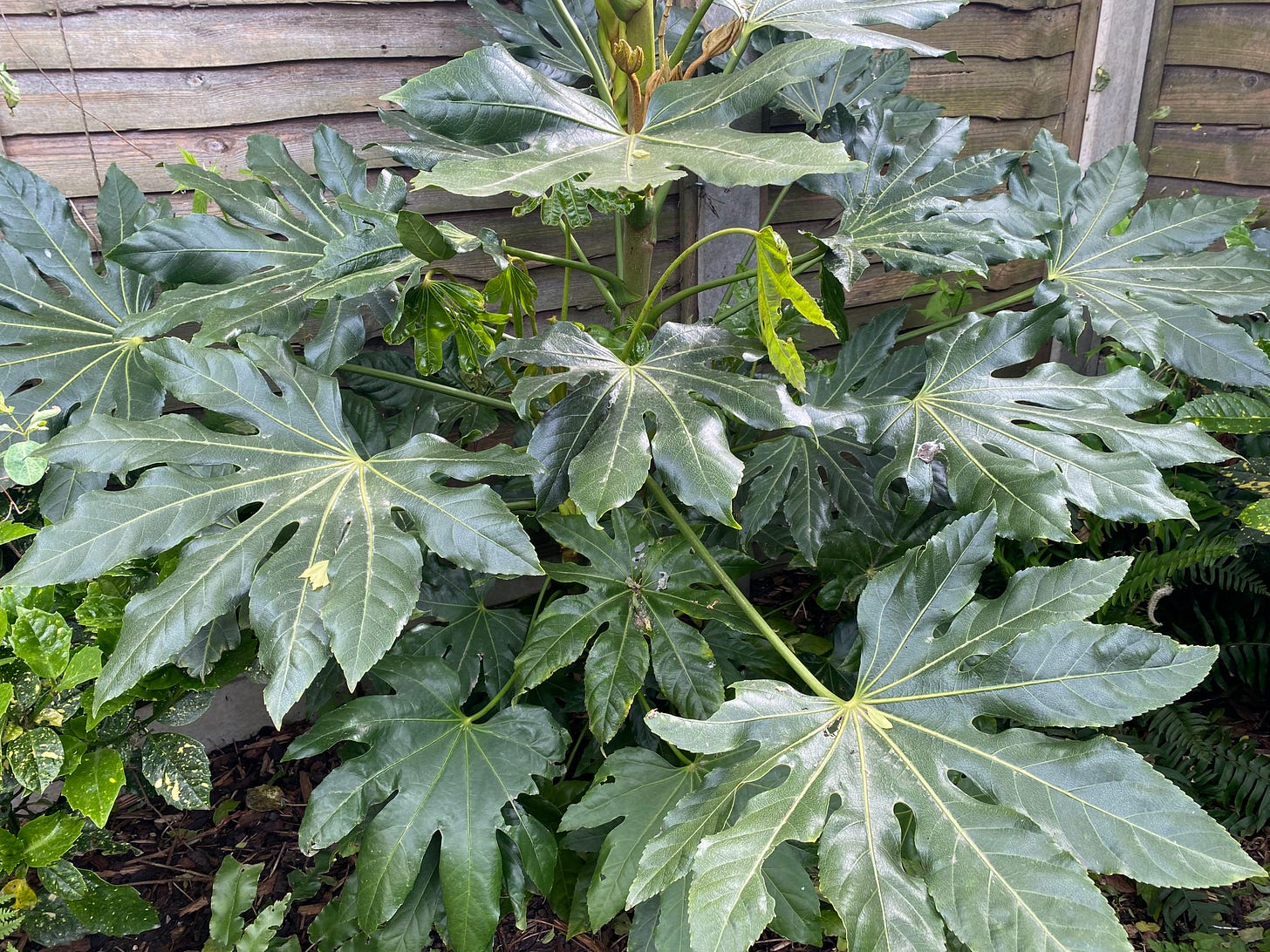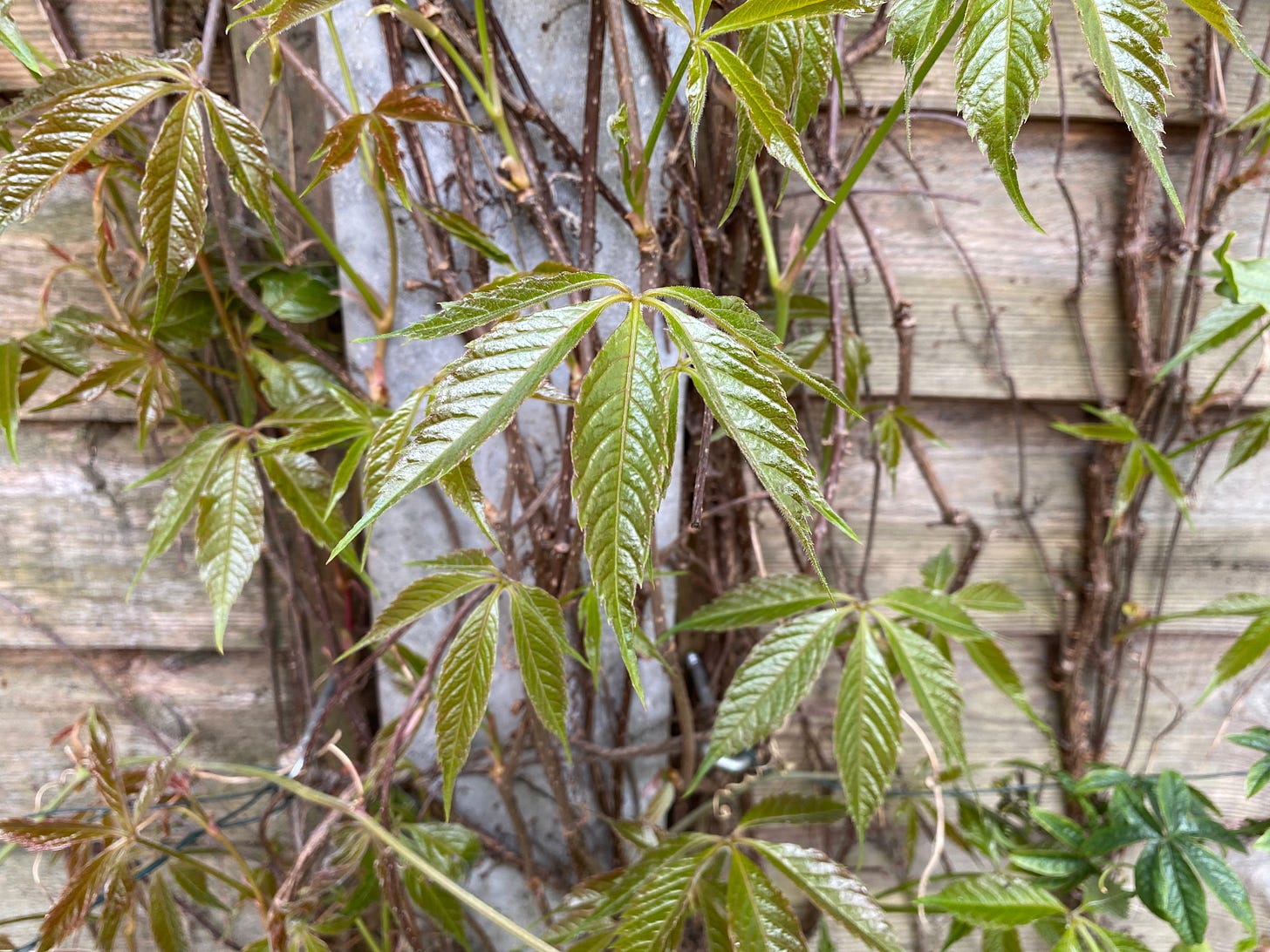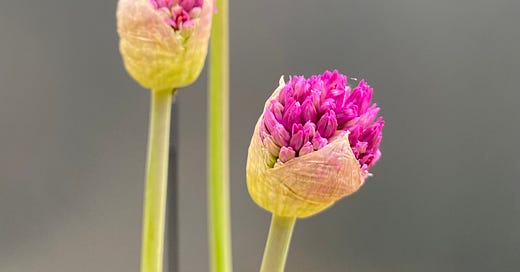The most important quality a gardener can possess
In the garden, good things come to those who wait – but can you be bothered?
You’re reading The Earthworm, a newsletter that takes a sideways look at the world of gardens, gardening, horticulture and all that good green stuff. If this is your first time here, you can catch up on anything you’ve missed by following this link. Subscribe now for free and join the community! You can also support me and my work on The Earthworm by upgrading to a paid subscription at any time – just tap the button below.
Who has the time for patience? Not me. We’re busy people. We’ve got things to do, places to be.
There are emails to send; appointments to arrange; invoices to submit; invoices to chase; invoices to pay; children to drop off at nursery; interviews to arrange; articles to write; children to collect from nursery; holidays to book; bikes to service; MOTs to arrange; phone contracts to renew; browser tabs to open, comparing the policy prices on home insurance, life insurance, phone insurance, travel insurance, car insurance; pest-control contractors to call; groceries to buy; meals to prepare; children’s baths to run; bedtime stories to read; birthday presents to buy; family gatherings to attend; newborn babies to meet; friends to see, before they give up on you entirely; work admin; life admin; work-life admin; WhatsApp messages to respond to; Instagram feeds, Twitter feeds, Facebook feeds to scroll and scroll and scroll…
I can feel my heart-rate quicken at the mere act of typing out these words. Most days, I’m lucky if I can squeeze in a quick shower. I usually can’t. There is no time for anything. We need to act, and act fast. We want results, and we want them now. Now. NOW!
Life was certainly slower before the advent of smartphones, but was I any more patient? It’s hard to say. It would be easy to blame my lack of patience on cultural or generational factors – on technology and connectivity and the expectation of immediacy that they engender within us – and I’m sure that has a role to play. But in truth, I’m simply not a patient person. And if patience is a virtue, then it is not one that I am in possession of.
The garden is unforgiving of people like me. Plants do not make concessions for their human custodians. They do not adjust, compromise, or work around our schedules. Plants move at their own pace, in line with the changing seasons, the resulting levels of daylight and heat that they are exposed to, and genetic factors that determine the tempo and duration of their life cycles. In the garden, things cannot be forced (rhubarb notwithstanding). And to the novice gardener, that can come as a real shock. It certainly did to me.
Though the shock may have passed, the frustration remains. It can take days for a seed to germinate, weeks for cuttings to root, months for flowers to appear, and years, even decades for a shrub or tree to reach its full size. It’s awful.
In late November, I sunk hundreds of bulbs into the soil: daffodils, tulips, alliums and irises. After the last little bulb had been covered over with earth, I stood up to look upon the fruits of my labour. Hours of digging, planting and careful re-covering, my fingers frozen, my lower back burning, and what did I have to show for it? Nothing. The garden looked exactly the same as it had before I started. And worse, it would continue to look this way for months.
Around a similar time, I took a handful of hardwood cuttings, mainly dogwoods, with a buddleia and a lime too, for good measure. Even if these cuttings root, and even if I don’t unwittingly kill them, it will be two, maybe three years, before they have reached the sort of size and appearance that will make them deserving of a place in the borders. There is no app in the world that can speed this process up. All there is to be done is to wait. And wait. And wait.
There are different approaches to waiting, of course. One is to circle a date in the calendar hanging on your kitchen wall, adorn it with several exclamation marks, and obsessively mark the passage of time by crossing off each passing day, like an inmate scratching lines on his cell wall. Another approach is to get on with your life and find other things to take pleasure in, no longer actively waiting but simply experiencing the passage of time. This latter style is known as “patience”.
Of course, there are ways to bypass patience. One of my horticulture tutors once said that when you go to a plant nursery, what you’re paying for is time. The time it took for someone to sow a seed or take a cutting, then tend to the seedling, pot it on, water it, feed it, shield it from the cold, shade it from the heat, and to continue doing so right up until the moment that you pick it up and stick it in your trolley. But time comes at a cost.
If you don’t want to wait for your grass seeds to germinate, you can buy turf. Instant impact, but far more expensive. If you don’t want to wait several years for your plum tree sapling to bear fruit, you can pay a premium for a mature specimen. If you can’t bear to wait for cuttings to root, then don’t take cuttings – go to the garden centre and buy a bunch of big plants in plastic pots, just don’t be surprised by the number on your receipt.
TV hardly helps. The majority of televised gardening shows are centred around instant makeovers, where over the course of 45 televisual minutes, Simon and Brenda’s neglected back yard has been transformed by Alan and the team into a Zen garden, complete with shoulder-high Japanese maples and a koi carp pond.
Is this instant impact enjoyable? Well actually, yes. I have watched countless Simons and Brendas open their eyes and gasp at the sight of their ready-to-go gardens, brought to actual tears by the speedy efforts of Alan Titchmarsh or Charlie Dimmock or whoever else. But crucially, the quick fix, enjoyable as it may be, is not satisfying.
Satisfaction is a reward reserved for those adventurous gardeners who are willing to reset their clocks to plant time. Those who buried the allium bulb in November, didn’t notice evidence of shoots until March, and are still now waiting to gaze upon its flower, with its perfectly round and tightly clustered constellation of bright purple stars. You can go to the garden centre right now, buy an allium in full bloom, shove it in a pot and enjoy it. But the pleasure that comes from having been patient is somehow more substantial. Like the difference between eating a packet of crisps or a plate of roast potatoes – they both taste good, but only one is going to sate your appetite.
It is not that gardening has taught me patience – I still find the act of sowing seeds, and waiting for the resultant plants to resemble those on the front of the packet, to be unbearably slow. No, what gardening has shown me is not so much how to be patient, but that it is possible to slow down, to ease off the gas, to step away from the stresses and strains of daily life and pass through a portal into another dimension, where time moves and is measured in an altogether different way.
That, I’m sure, is one of the reasons that people find the act of tending to their plants to be relaxing, meditative, mindful. Because while in every other aspect of your life you demand instantaneity – or instantaneity is demanded of you – once you enter the world of plants, you have no choice but to do things their way, on their terms, to their schedule.
My heart still sinks when I look at one of my shrubs and try to imagine how many more years it’ll be before it takes on the form that I was hoping for when I planted it. But I also know that when that day finally comes, it will have been worth the wait.
Three plants for the impatient gardener
These widely available and fast-growing plants may not give you instant impact, but certainly pretty damn rapid impact.
Photinia x fraseri ‘Red Robin’
At the beginning of Lockdown 1 in 2020, I ordered three ‘Red Robin’ plants to create an evergreen screen against the shady back fence, between the right-hand boundary and our big box elder tree. The varieties that arrived weren’t actually the ubiquitous ‘Red Robin’, but close enough. When I planted them out they were twigs, barely a foot high; now look at them.

Fatsia japonica
Another absolute classic, and for good reason. It’ll tolerate any light conditions (mine is growing in basically full shade); it has wonderfully sized and shaped leaves that work especially well if you want to create a tropical sort of feel in your garden; and it’s winter-flowering, which means it provides nectar for bees and then berries for birds when such commodities are at their scarcest. Oh yeah, and it grows pretty quick too. This one was a baby 18 months ago.

Parthenocissus quinquefolia (aka Virginia Creeper)
This climber is so aggressive that it actually frightens me. If you leave it to its own devices – which I do, because like I said, who has the time? – it will cover a wall or fence quicker than you can say Parthenocissus quinquefolia. It’s deciduous, but before its leaves drop in the autumn they turn the most amazing and vivid shades of pink and purple and red. Beautiful, but approach with caution.

Are you a patient gardener? Does all the endless waiting involved in tending to a garden bring you peace? Or drive you up the wall? And do you have any favourite fast-growing plants to recommend to your fellow Earthworm readers? Leave a comment and let us know.





Ever since I started gardening in our new house, I've had to be patient in ways I'd never even imagined. Sure, I was used to the idea of planting a tomato seed and waiting a couple months for fruit but now I was planting small shrubs and waiting years for them to fill out a space. Now that we're reaching our 3rd summer in the house, I'm finally starting to see some of those results. Gardeners around here often use the phrase, "sleep, creep, leap" to describe the phases of perennials so if that's accurate, then this summer should be the summer of leaps for a lot of these plants!
My patience in the garden varies. Starting seeds or direct sowing in beds feels like a science experiment. I look forward to each phase of the plant's life and am not bothered by the time it takes. Maybe that's because there's always something else to take my attention and energy. But trees are a different matter. To borrow your phrase, we "paid for time" by having some mature trees planted last year at the same time as younger varieties. We just couldn't bear the thought of waiting years and years for everything to grow.